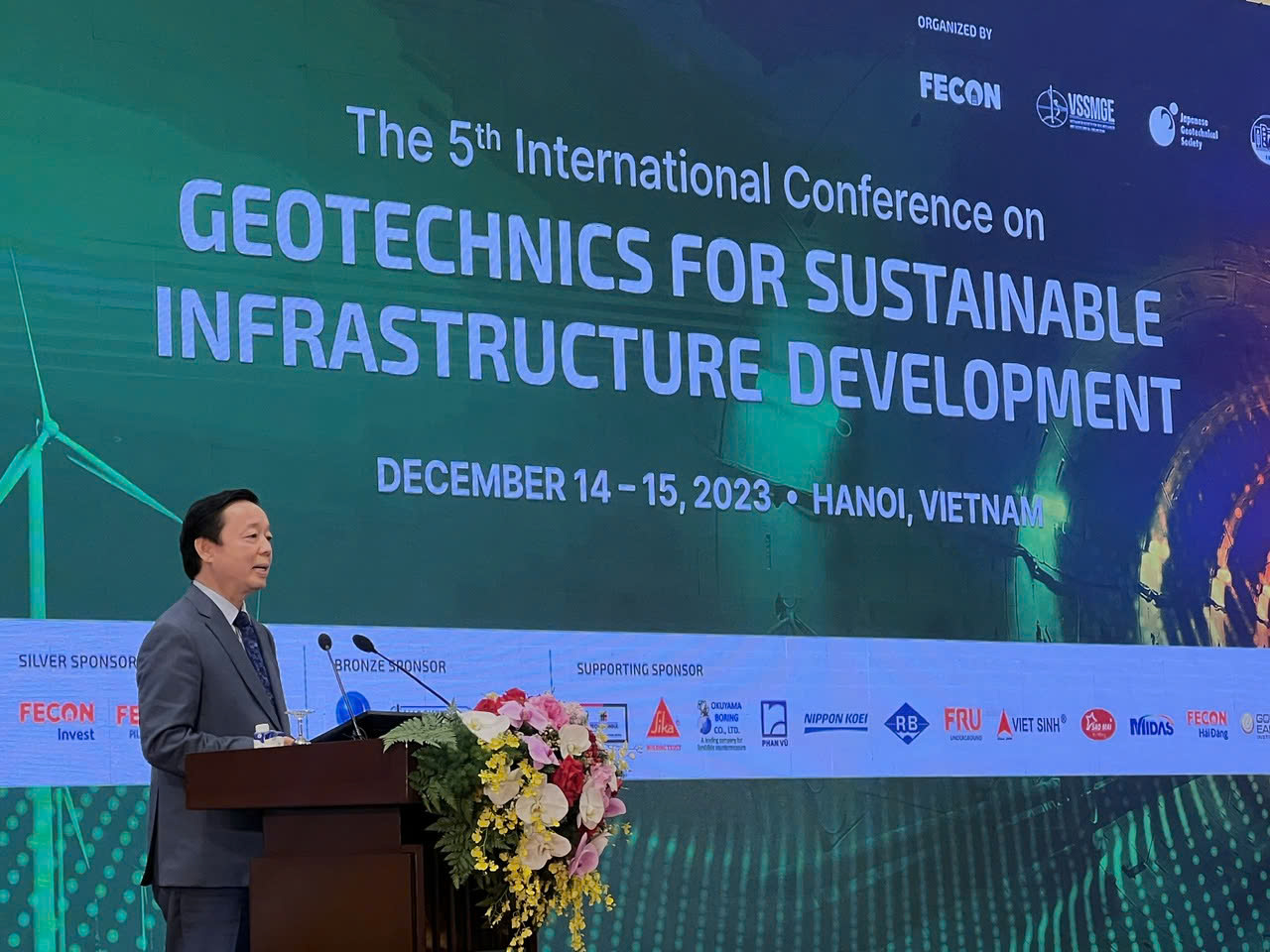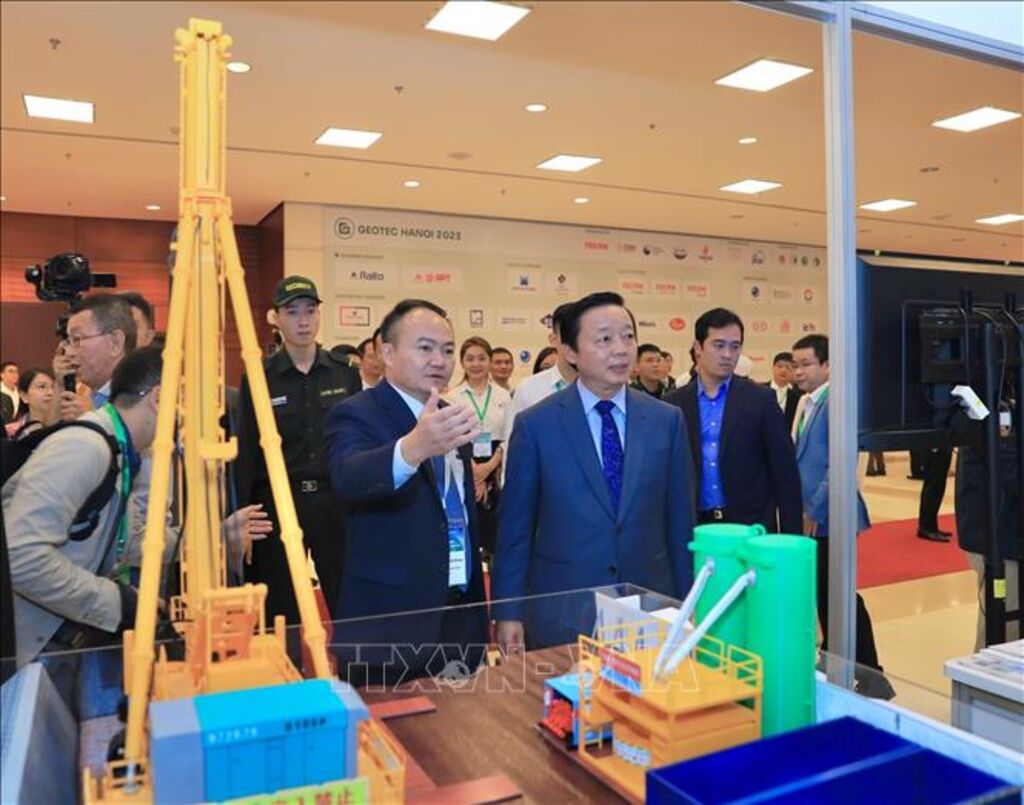On December 14, speaking at the opening ceremony of the GEOTEC HANOI 2023 International Conference themed “Geotechnics for Sustainable Infrastructure Development”, Deputy Prime Minister Tran Hong Ha emphasized that the ongoing trends of green transition and digital transformation are posing new challenges for geotechnical science.
The Deputy Prime Minister highlighted the essential role of geotechnics in promoting sustainable infrastructure development and ensuring safe living environments for communities, particularly in the context of increasingly frequent extreme weather events, natural disasters, and climate change. He highlighted that geotechnics is a multidisciplinary and transnational field that integrates geology, earth sciences, environmental science, physics, mathematics, and chemistry, supported by the latest computational models and technologies.

Beyond infrastructure development, geotechnics has become deeply embedded in various aspects of economic, social, defense, and security sectors-especially as economies shift from reliance on natural resources to knowledge-based development models.
“With the current resource-dependent development model, humanity would require t equivalent of three Earths to meet its needs. Therefore, geotechnical science must provide solutions for infrastructure development that exert minimal impact on the planet and are environmentally sustainable, especially as we expand our habitable space through underground construction and offshore development,” he stated.
Referring to recent catastrophic earthquakes and tsunamis, the Deputy Prime Minister stressed the urgency of advancing fundamental research in earth sciences and geotechnical engineering to inform spatial planning, urban development, and the layout of strategic and critical infrastructure. He also emphasized the importance of building comprehensive geotechnical data resources from interdisciplinary fields such as geology, climatology, hydrology, and environmental science. Furthermore, he emphasized the importance of advancing research into new, sustainable construction materials that are both environmentally friendly and structurally sound.
According to the Deputy Prime Minister, international geotechnical conferences are an effective mechanism for connecting scientists, facilitating knowledge exchange, and fostering collaboration to address global and contemporary challenges facing sustainable development, not only for the planet as a whole, but also for individual nations, both now and in the future.
He expressed his hope that the conference would lead to interdisciplinary collaboration on joint research initiatives, with pioneering enterprises driving the commercialization of these innovations. “There are numerous practical challenges facing scientists—from fundamental issues to applied solutions, all aimed at creating safe living environments for communities and society, in line with green transition efforts to restore, protect, and sustain the Earth,” he concluded.

The conference features in-depth technical sessions on topics such as deep foundations, tunneling and underground works, soft ground improvement, numerical modeling and geotechnical instrumentation, landslides, and erosion, as well as renewable energy – offshore wind power and coastal geotechnics.
Within the framework of the conference, 55 exhibition booths from scientific organizations, and domestic and international companies are showcasing products, brands, and cutting-edge technical solutions and technolog
